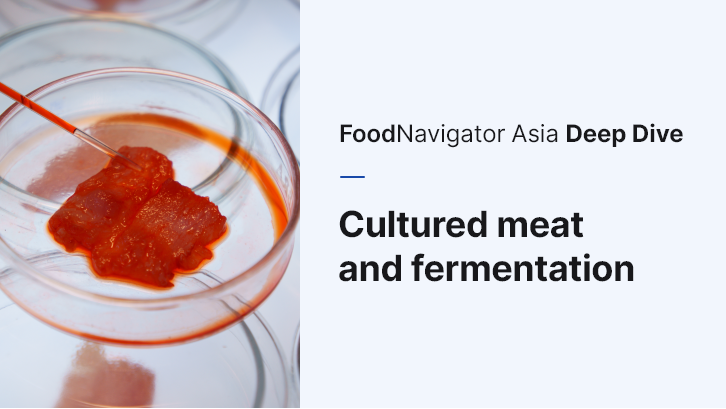Novel protein development technologies such as cultivated meat and precision fermentation have come a long way since first bursting onto the food and beverage industry scene several years back, when these were considered far-fetched or impossible contributors to the global food supply.
These survived through the onset of the COVID-19 pandemic, and have reached a stage where food regulatory authorities all over the world are now seriously looking at these as future alternative protein solutions.
While there has been significant pushback in some countries - such as Italy, which recently made headlines after banning cultivated meat production and promotion in the name of ‘protecting’ the local food system - there has been much more positive progress in the Asia Pacific region leading scaling up, commercialisation and product affordability to be much more prominent areas of focus here.
China’s Premier Xi Jinping highlighted alternative proteins including cultivated meat as a crucial part of the country’s developmental strategy last year, and Singapore has of course been leading the charge as the first market in the world to grant regulatory approval for the sale of a cultivated meat product to Eat Just in 2020.
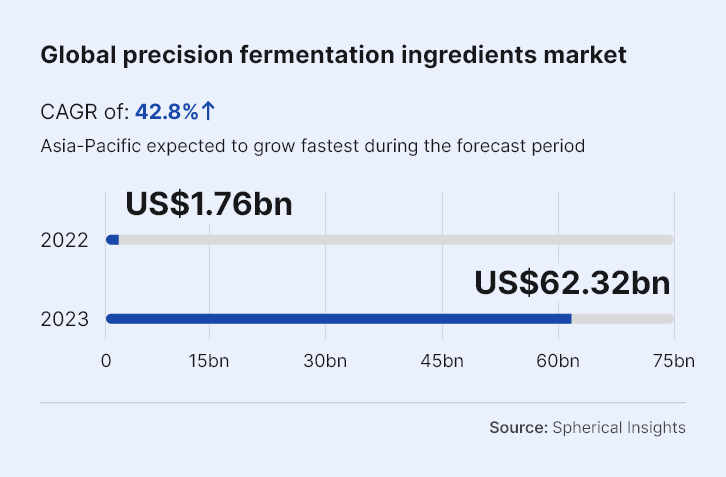
Given all of these developments, world-first commercial cultivated meat production firm Esco Aster believes that the golden age for cultivated meat will come in another decade or so.
“We believe that within the next five years the focus will be on scaling up and really demonstrating the immense potential of cultivated meat, likely starting with more high-end products such as unagi or organic chicken to reach price parity faster,” Esco Aster Xiangliang Lin told FoodNavigator-Asia.
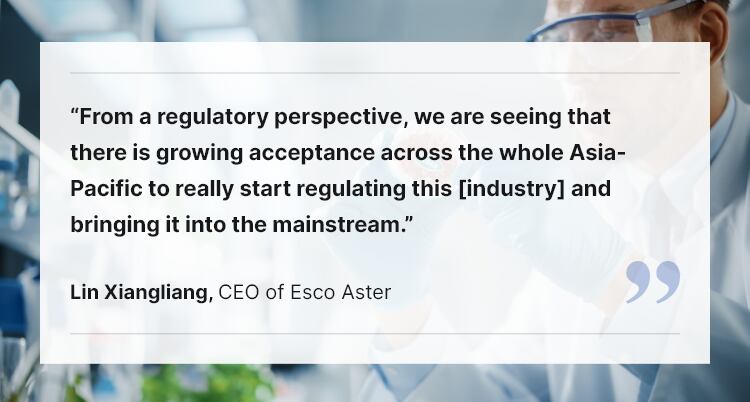
“Beyond that, we do think we will need a longer time to really scale up to a massive scale, in a way that can really reach down to the consumers [in the mass market], and that would be a probably a 10-year mark in 2033.
“What is really encouraging is that after Singapore was the first in the world to come up with a novel protein standard, we are seeing that many other countries, especially in Asia Pacific, are following suit to either come up with similar novel food standards or to add to their food standards, so there's a growing acceptance across the whole region to start regulating this and making it more mainstream.”
“We are already seeing requests across many different species and categories from pork to chicken to beef to seafood, with the halal-focused countries are particularly interested in beef.”
Watch the video below to find out more.
Over on the precision fermentation side, industry leader Perfect Day successfully developed the world’s first animal-free ice cream and milk under the brands Coolhaus and Very Dairy, commercialised these into supermarkets, and subsequently sold these brands to US-based food tech firm Superlatus.
Although likely still considered to be at premium pricing by the average consumer, such developments demonstrate that the precision fermentation is moving forward much more quickly towards the commercialisation and affordability goals that define mainstream penetration, and this is largely due to the fact that the technology itself is not new.
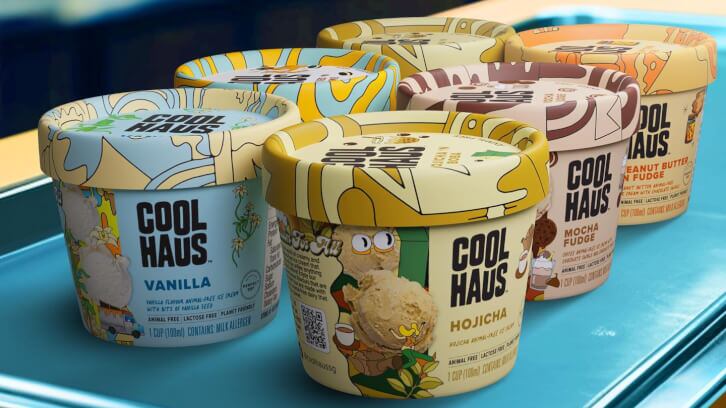
“Whilst precision fermentation itself is a somewhat novel concept, fermentation of course has been around for centuries in categories like beer and even pharmaceuticals,” Perfect Day Consumer Division President Alex Brittain told us.
“This really brings out the best of the alternative protein world – because dairy proteins are still used, the taste, texture and nutrition is still there even without the involvement of the cow, yet the sustainability benefits are apparent too.
“Plant-based products have been around for some time and converted some consumers, but not as many as needed to make that huge change, so this is really the next step, and as we scale up and the technology improves, we do see precision fermentation products reaching price parity within a few more years and likely quicker than cultivated products.”
How important is affordability to the industry?
Novel protein production depends heavily on technological advancements, which of course come with a hefty price tag and stand firmly in the way of companies being able to reach price parity within short time frames.
But at the same time, the sector will need to cater to as many consumers as possible, as quickly as possible in order to grow to a stage where commercialisation can show returns of investment – so getting consumers to not only be interested but also willing and able to make purchases is crucial, which very much comes down to affordability in the APAC region.
“We know that the idea of consuming cultivated meat still requires further education in terms of what it is, how we develop it and how we can produce it [so] the faster we launch, the faster we can start that education to build consumer acceptance and begin making an impact with harm-free meat,” Meatable Co-Founder and CEO Krijn de Nood told us.
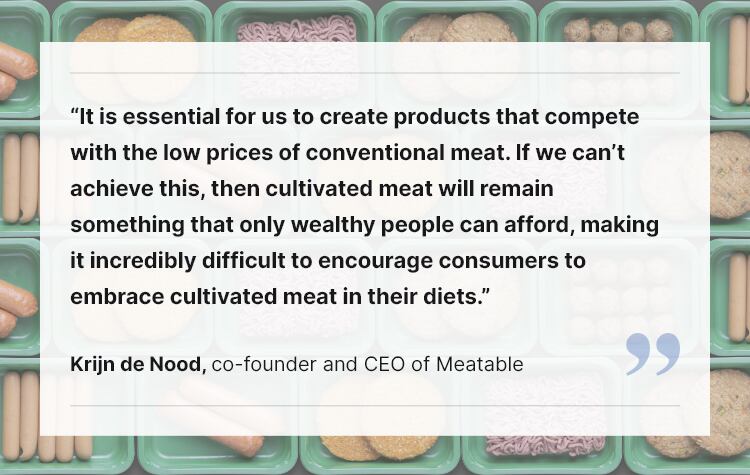
“We also see it as essential to create products that compete with the low prices of conventional meat, as to achieve our vision of providing the world with harm-free meat, we have to be price competitive.
“If we can’t achieve this, then cultivated meat will remain something that only wealthy people can afford, making it incredibly difficult to encourage consumers to embrace cultivated meat in their diets.
“With our technology and its recent achievements in terms of speed, we are ready to scale up the production of our products at a cost-competitive price point to reach mass market demand to ensure widespread accessibility.”
Precision fermentation pioneer TurtleTree believes that the introduction of value from such products also serves as an importance driver for consumer acceptance, such as with the firm’s precision fermentation lactoferrin ingredient.
“Lactoferrin is actually a bioactive ingredient with a lot of functionality from immunity to iron regulation to gut health,” TurtleTree Chief Finance Officer Alex Pestalozzi added.
“It predominantly goes into infant formula and also fortified yoghurts and milk – milk naturally does contain lactoferrin but once UHT treatment is used on milk, this is denatured and firms such as Yili have been adding it back to regain that functionality.
“So we use our precision fermentation platform to recreate this lactoferrin that is normally taken out of milk, and that is of important value from a health and nutrition point of view.”
Lactoferrin is priced between US$750 to US$1,500 per kilogramme as it takes a minimum of 10,000 litres of milk to obtain 1kg of this product – meaning that demand often tends to outweigh supply.
TurtleTree recently announced that it had obtained the world’s first self-GRAS (Generally Recognised As Safe) status for its lactoferrin LF+, and is targeting commercialisation of this product in the United States during Q4 this year with an initial focus on adult nutrition applications.
Big MNC interest
When it comes to affordability and accessibility, the most time and cost efficient strategy is to partner with other organisations that have the existing financial backing and networks to support product development and growth – which is precisely what cultivated seafood firm BlueNalu has done here in Asia.

The firm has signed partnerships with three big household seafood names in Asia, namely Thai Union in Thailand, Pulmuone in South Korea and Mitsubishi in Japan, with a focus non market research, regulatory understanding to expedite approvals in each respective market and market entry and distribution strategies in APAC.
“These extended partnerships in APAC underscore our dedication to working collaboratively with local experts in each region and our ultimate goal to provide healthy and trusted seafood options with superior product benefits and aligning with evolving market conditions,” BlueNalu President and CEO Lou Cooperhouse said.
“Our first product under development is the high-value toro portion of bluefin tuna, which is highly sought after in Asia where over 80% of the estimated global supply is consumed.
“Bluefin tuna is available in very limited supply, can be extremely variable in its quality and sensory attributes, and has faced steep declines in fish stocks due to issues like overfishing and illegal, unregulated and unreported (IUU) fishing.”
Going unique first
In addition to contributing to the protein supply, several firms have also opted to go down a more unique and unusual path with novel technologies – one of these is China-based firm Jimi Biotech.
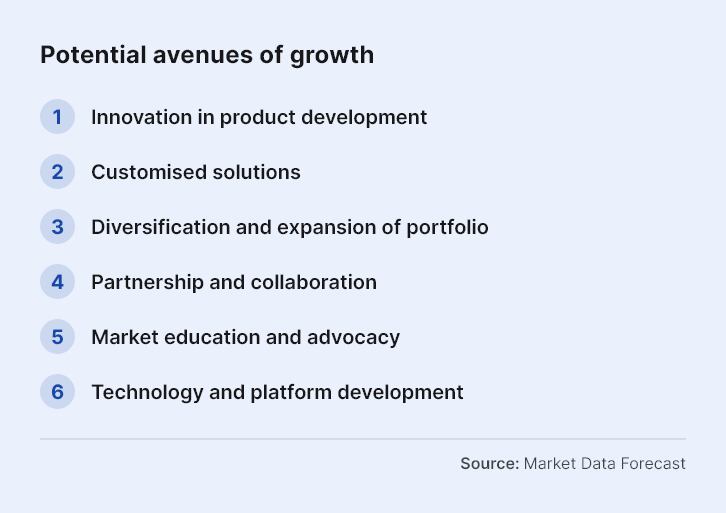
The firm has developed prototypes of cultivated meat for the protein point of view, but is now turning its attention to deer antler stem cells in hopes of generating steady income whilst continuing its work with meat.
“Our primary focus is on deer antler and also beef, but where meat price parity will still take several years, deer antlers are very expensive, so we already have a cost advantage in production for these,” Jimi Biotech Operations Director Yikai Wang told us.
“Deer antler is a very popular traditional Chinese medicine and health supplement, and it’s a very big market in China and other Asian countries, so we now have the ability to produce a valuable and popular product at a lower price.
“We believe we can generate steady and substantial revenue more quickly, which is very beneficial to us in the long-term cultivated meat industry.”
The firm aims to work on such high-value products first before progressing to more affordable ones such as poultry.
“We have done work on chicken before and our chicken cell lines behave very well, but our strategy is to move from high value products to more affordable products, so we will start with deer antler, and then include beef, and finally include chicken and pork,” he said.


